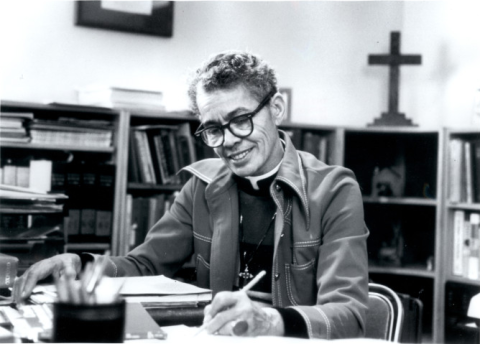Groundbreaking Episcopal priest Pauli Murray to be featured on US quarters

Pauli Murray, the first African American woman to be ordained a priest in the Episcopal Church and a pioneer in the struggles for racial and gender equality, will be featured on US quarters in 2024, the US Mint announced on February 1. She and four other women are being honored next year as part of the Mint’s American Women Quarters series, celebrating the contributions of women to United States history.
Murray, whose feast day is celebrated on July 1 in the Episcopal Church’s calendar of saints, was also a lawyer, writer, and co-founder of the National Organization for Women. Often the first or only Black woman in the positions she held, Murray was a groundbreaking leader in the civil rights movements of the 1960s, though her contributions were long overlooked.
She is being honored along with Patsy Takemoto Mink, the first woman of color to serve in Congress; Mary Edwards Walker, a Civil War surgeon, women’s rights advocate, and abolitionist; Zitkala-Ša, an advocate for Native Americans’ right to US citizenship; and Celia Cruz, the Cuban American “Queen of Salsa.” The quarter designs will be unveiled this summer, the Mint said.





